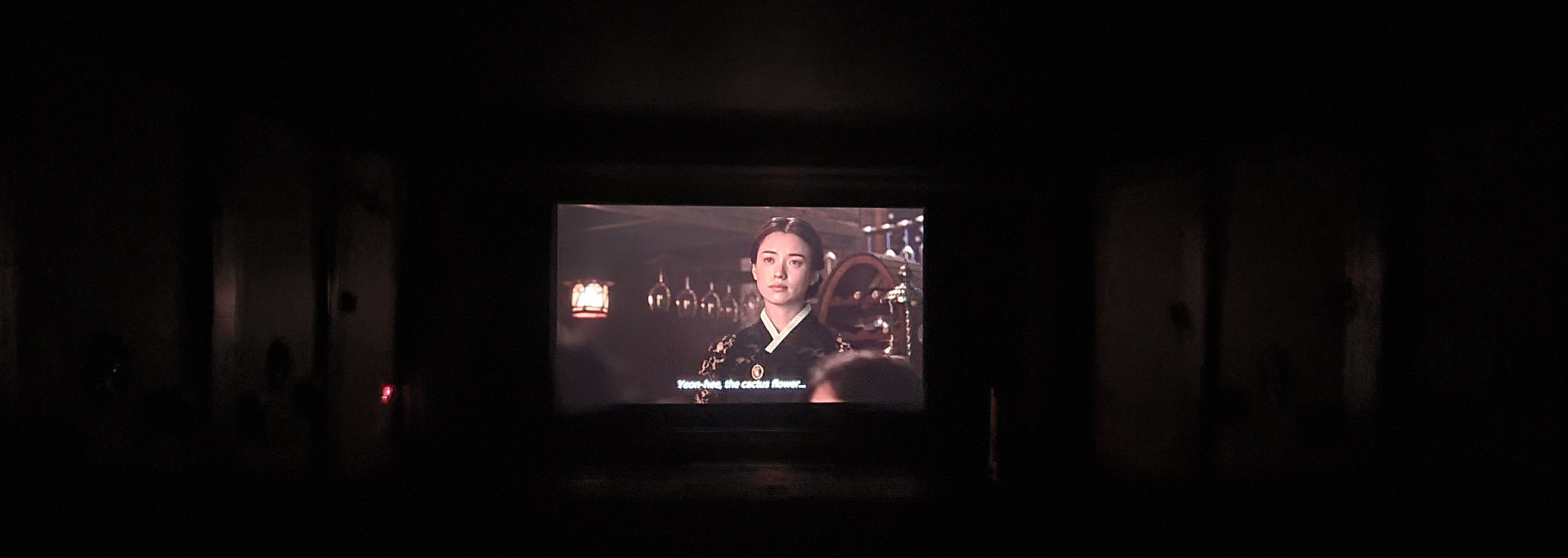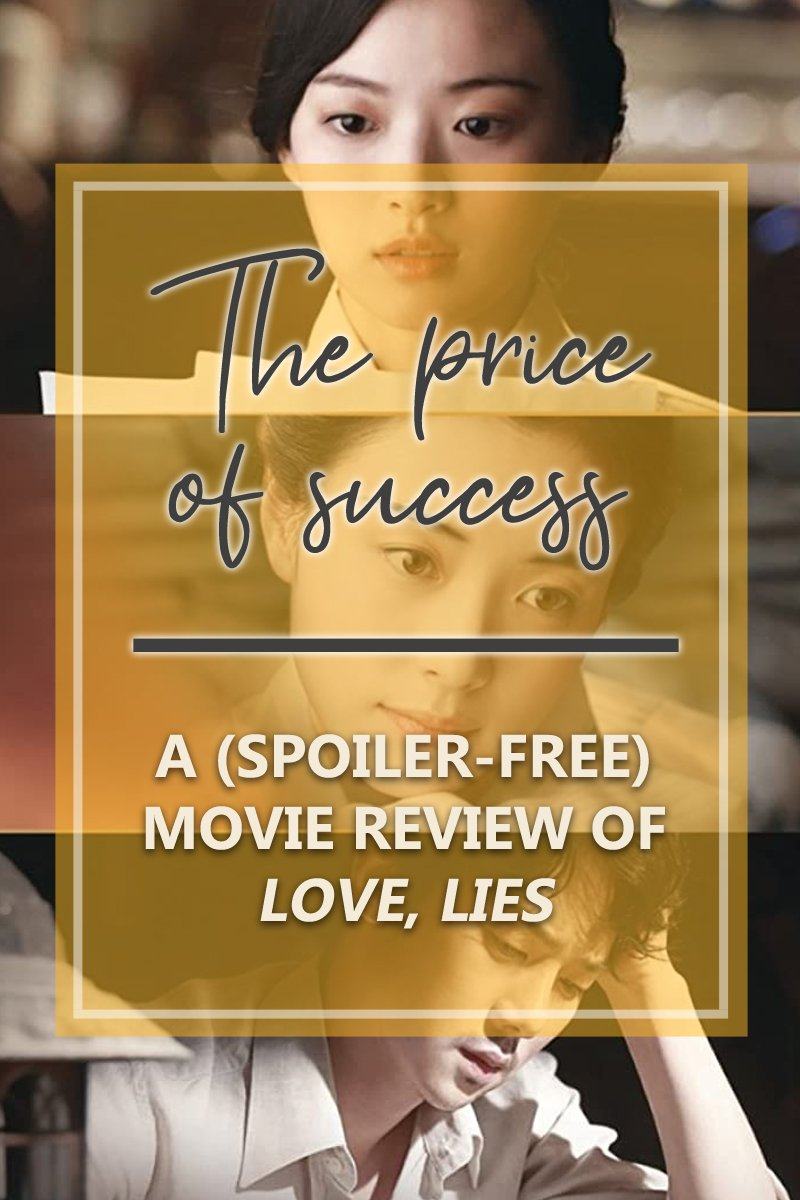
The Price of Success | A review of Love, Lies (해어화)
Is anyone else just so happy to go see non-mainstream movies in old-timey theatres? The way the marquee stands out on the street as you walk up, the pleasing sight of vintage ticket booths, the smell of popcorn mixed with an indescribable scent that brings you back to your childhood. It’s these kinds of things that make me so grateful for events like film festivals, because otherwise the only moviegoing experience we’d ever have is Hollywood blockbusters and kids movies in chain theatres.
We’re currently right in the heart of the 5th Ottawa Korean Film Festival, which is what brought me to the Bytowne Theatre in Ottawa on October 2nd. This year’s overarching festival theme is “Music & Dance”, showcasing a carefully curated selection of films both in-person and online.
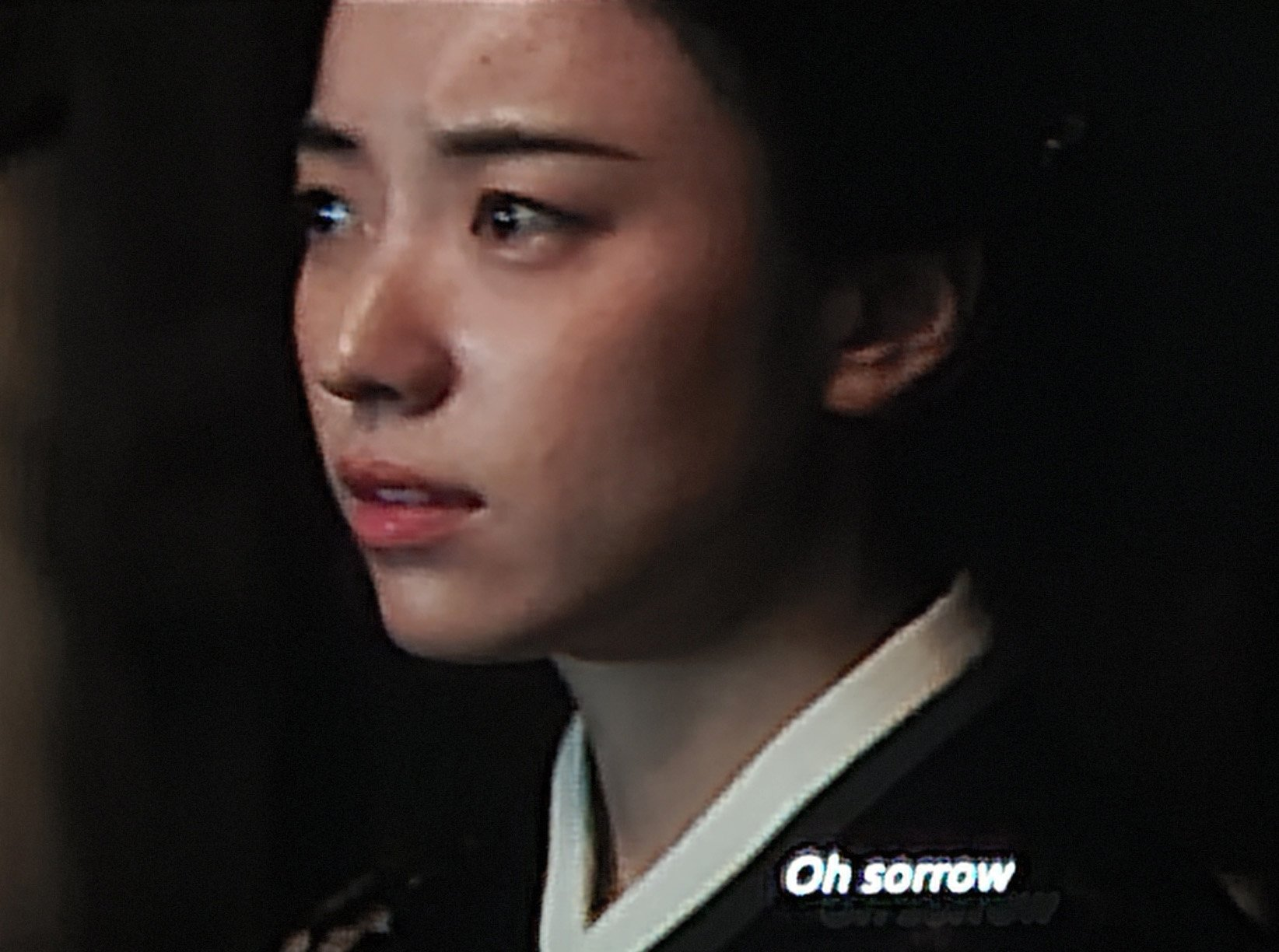
The film I saw yesterday was director Park Heung-Sik’s 2016 period drama Love, Lies (해어화). It will probably come as no surprise that a story set primarily during the Japanese occupation of Korea in WWII is an emotional ride, so make sure to bring some tissues, and try not to cry on your snacks.
Ahead of discussing the plot, I just have to commend the incredible performances delivered in an enormous range by every single actor in the main cast (as a very character-focused film, there are very few side characters and extras); however, Han Hyo-Joo deserves a special shoutout for her portrayal of the protagonist, and for her singing voice. I’ve never heard a voice that sounds so much like an instrument. Like a bow being pulled across strings gently, and intensely, depending on the scene.
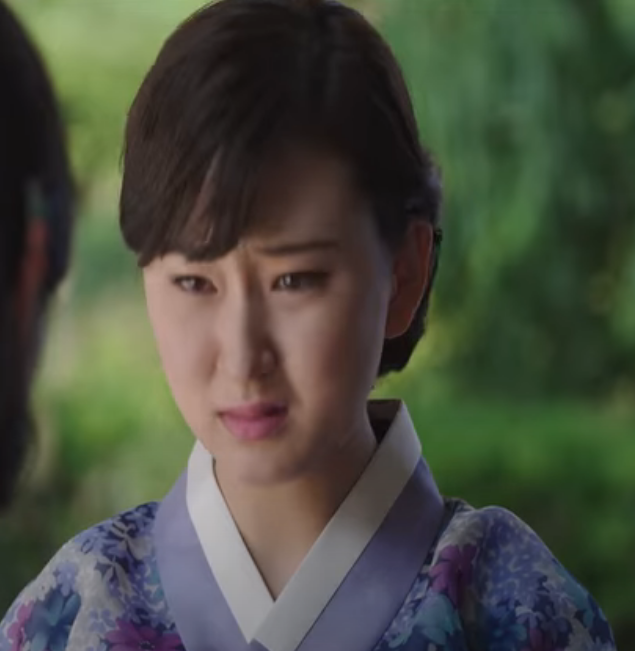
As a costume-maker myself, I couldn’t take my eyes off the gorgeous collection of historical fashion shown throughout the movie, both the Korean and the more Western looks too. I wanted to add every hanbok worn by the women (particularly the patterned fabric ones) to my closet and the vintage American dresses were to die for.
Not only is this film an opportunity to appreciate the clothing customs of different societies, but a unique chance to see the dichotomy of the old versus the new, and how fashion trends can be adopted very quickly. It’s strange to think about, but in the 1940s, the poorer, larger portion of Koreans were still primarily using horse and buggies, or rickshaws, to get around on dirt roads. Hanbok were worn daily by both men and women, and only the extremely wealthy who could afford to travel and order clothes from abroad were able to adopt the more modern styles. Now big cities modernize faster because that’s where the rich people go, while the rural populations are kind of left behind. In the case of Love, Lies, we see the characters’ transition in a compact time frame but it does typically take a while.
Now, before I go any further, I need to say something.
Every country has ugly blemishes from the past. Trauma from the actions, or inaction, of our ancestors can be both intentionally and subconsciously passed from generation to generation, and although we work hard to ensure the terrible things that happened never happen again, it is still important to remember and recognize the past so it doesn’t repeat itself.
I bring this up because Love, Lies is historical, and includes a number of gut-wrenching scenes portraying the kinds of horrors people (especially women) faced during a wartime occupation.
This blog post will include no spoilers for the story because honestly the movie is an artistic masterpiece in every sense of the word and it should be experienced fully; however, I will be referring to some situations, in general, that may cause discomfort for some readers. In the interest of preventing anyone becoming upset, please heed the following content warning.
CW: there may be references to difficult topics such as child slavery, death, prostitution, and rape in the following text. Reader discretion is advised.
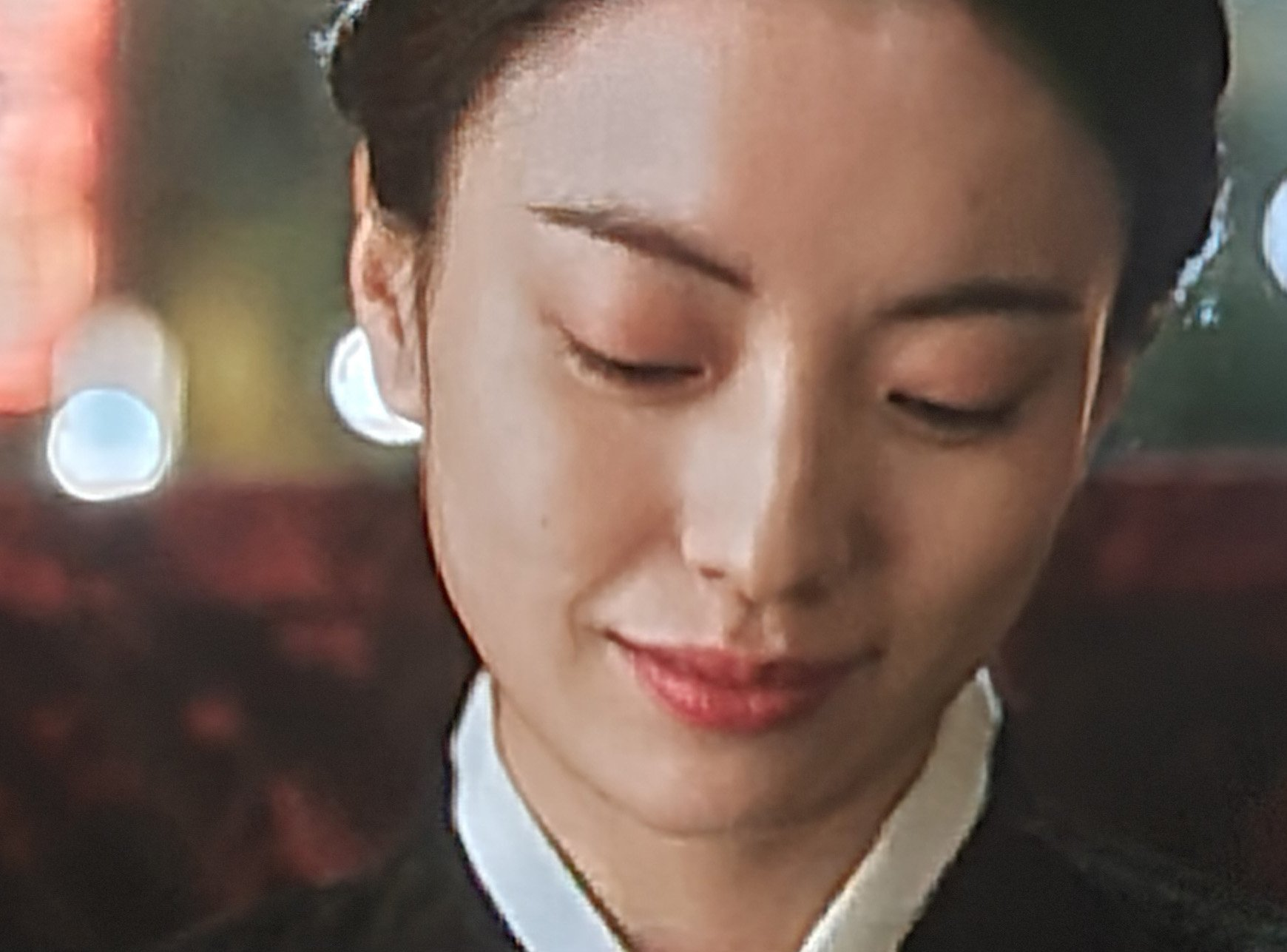
Set mainly in the year 1944 (although there are a couple time jumps later on), the audience follows main character So-Yool, a beautiful girl who lives and trains at a gwonbeon.
Gwonbeon (권번) were government-supported institutions to which outcasts and the poor could sell their young daughters. There, the girls were trained from childhood to become Gisaeng (기생), performers of traditional song and dance for the upper class and military leaders to earn money for their family. While this sounds safe and innocent enough, the Gisaeng were often coerced, if not blackmailed or directly forced, to perform sexual acts on their clients as part of the “performance”.
So-Yool and her best friend Yeon-Hee make a promise that they will forever only sing jeongak (정악), the traditional singing method they’d been raised to perform, despite the rapidly rising prevalence of upbeat, catchy pop music. While the girls hold onto their hanbok and cultural heritage, others are happy to accept modernization, such as So-Yool’s boyfriend Yeon-Woo (Yoo Yeon-Seok), who wears suits and drives a car.
At some point in the narration, near the beginning, So-Yool says, “Nothing is more foolish than trusting a man”, and I believe that perfectly captures the movie’s entire vibe in just one sentence.
Of course, as we all know, when we get older, promises aren’t always easy to keep. Sacrifices are made and secrets are kept from loved ones, just for a taste of success. Betrayal and heartbreak are hard to heal from. And sometimes, you have to crush someone else under your boot to win at any cost.
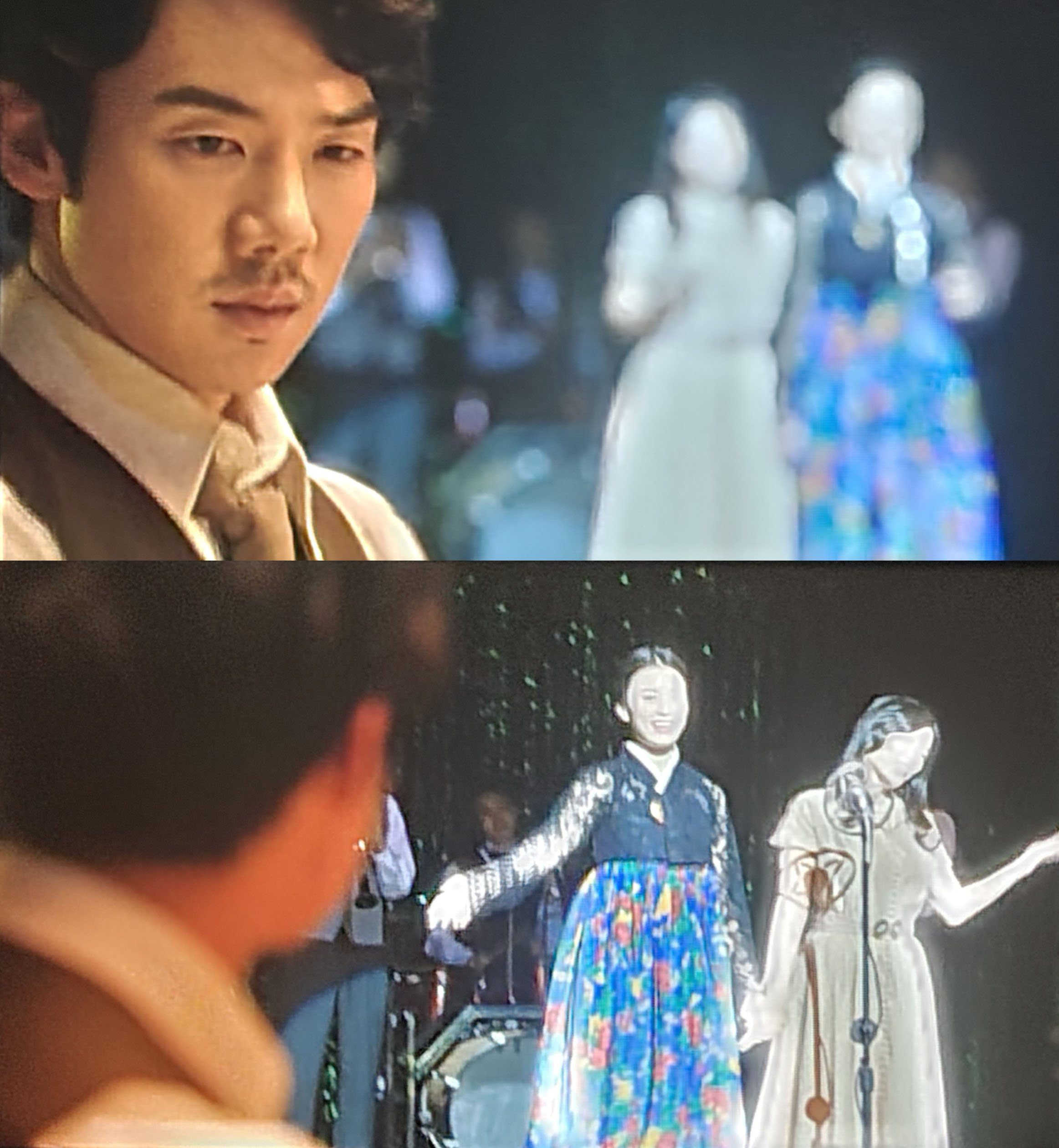
The movie really captures the feeling of being at an intersection of history, running the overall societal struggle of enemy occupation and adapting to change parallel to So-Yool’s character development. Pulled in many different directions and questioning the loyalty of everyone around her, our protagonist’s attempts to be a successful singer (in an era where tastes are changing) grow more desperate at every turn.
I’ll warn you now there is a very violent sexual assault scene late in the movie, and though it is not graphic, it is quite upsetting. It’s worth watching though, to have even the slightest idea of what those women did to survive.
This is not really the place to get any deeper into such a heavy conversation, but in my opinion, if you love a peoples’ culture you should also learn their history, to see how they fought and endured to have the things you love today. That’s why I suggest educating yourself a little more about the various occupations of what is now the Republic of Korea, and especially on the topic of Korean comfort women.
By the end of So-Yool’s tale (after a somewhat unexpected but very satisfying denouement) my head was swirling with all the questions the movie raised, without ever explicitly saying any of them.
Is it worth sacrificing something, or everything, to be famous? Is it better to be famous, or to be yourself? Will being successful make you happy? How do you let go of the past? Can love truly heal once trust has been broken? Is one’s entire identity defined by what they’re good at?
You’ll have to decide for yourself.
